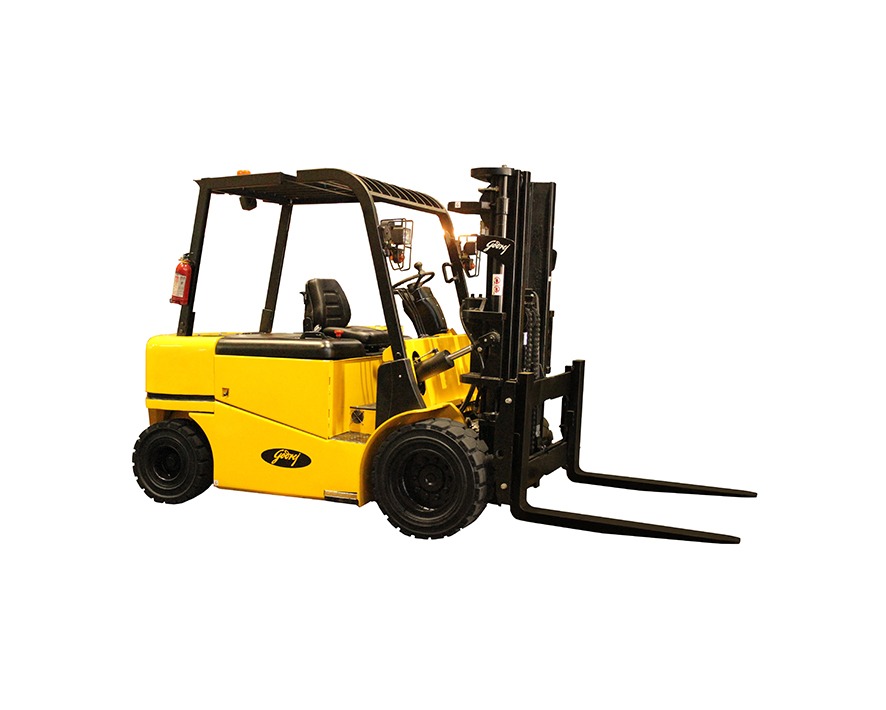A lively warehouse bustling with activity or an industrious hub, where forklifts work diligently amid the organised chaos, is a facility that can claim to function smoothly. Material handling equipment (MHE) operated by skilled operators, ensure swift movement of goods crucial to daily operations. In this coordinated productivity, forklift service providers emerge as guardians, ensuring these powerful machines remain dependable and functional.
This article helps you navigate the maze of considerations when selecting a forklift service provider. Whether you oversee a warehouse or manage an industrial setting, having the right service partner is crucial to smooth operations and uninterrupted workflow. By exploring aspects such as experience, service breadth, reputation, and compliance, you will gain valuable insights to make informed choices tailored to your unique needs.
Experience and Expertise
When it comes to maintaining forklifts, providers with extensive experience bring a wealth of knowledge acquired from years of handling various forklift models and complexities. This expertise translates into a deeper understanding of these machines’ subtleties, enabling swift diagnoses and effective resolutions for issues that might arise.
Not all expertise is equal when it comes to forklift servicing. Some providers may specialise in specific brands or types of forklifts, while others boast a broader spectrum of capabilities. Understanding the range and depth of a provider’s expertise helps align their skill set with your unique forklift requirements.
Experience acts as a catalyst for quality service. Providers with extensive experience often possess refined processes, efficient troubleshooting abilities, and the capability to foresee potential issues. This relationship between experience and quality of service instils confidence in the reliability and effectiveness of the maintenance provided.
Range of Services Offered
Having a diverse and extensive range of services is like possessing a toolbox fully stocked with solutions tailored for any potential challenge. It contains routine maintenance, emergency repairs, parts replacement, and specialised services tailored to specific forklift functionalities.
Essential services to seek include routine inspections, lubrication, brake and tire checks, and fluid level assessments. Beyond these basics, providers offering diagnostic evaluations, preventive maintenance plans, and training programs add substantial value. Understanding the distinct needs of different industries and businesses is crucial. A provider’s capability to customise their services ensures alignment with your precise forklift usage and operational necessities. Tailored maintenance plans not only enhance performance but also reduce downtime.
Reputation and Reviews
A provider’s reputation is like a beacon guiding your decision. A reputable service provider earns their standing by consistently delivering quality services, being reliable, and having a track record of satisfied clientele.
Their reputation becomes a testament to their commitment to excellence. An added incentive would be payable forklift rental with a driver, who handles all the running around, saving you time and energy on that as well.
Researching a provider’s reputation involves exploring its history, client testimonials, industry certifications, and affiliations. Delving into their track record for completed projects can offer valuable insights.
Reviews and testimonials, when evaluated critically, provide first hand accounts of a provider’s performance. Look beyond mere ratings. Focus on detailed experiences shared by previous clients, highlighting aspects like responsiveness, expertise, and overall satisfaction.
Industry Recognition
Selecting a forklift service provider with industry recognition is a strategic move that underscores their commitment to excellence. Industry accolades, certifications, and endorsements serve as a testament to the provider’s adherence to high standards and best practices. Recognised service providers often undergo rigorous evaluations by industry experts, ensuring that they meet or exceed industry benchmarks for safety, efficiency, and reliability. By aligning with a reputable and well-recognised service provider, businesses can have confidence in receiving top-tier maintenance, repair, and support services, ultimately contributing to the longevity and optimal performance of their forklift fleet.
Equipment Quality and Maintenance Standards
Well-maintained material handling equipments (MHE) are the lifeline of operational efficiency. They ensure safety and optimise performance, contributing to increased productivity and prolonged equipment lifespan. Checking if the equipment is good means looking at its service history, seeing how the forklifts are during servicing, and ensuring manufacturer guidelines are adhered to. It also includes evaluating the quality of replacement parts used during repairs.
The reliability of a service provider depends on how well they stick to strict maintenance rules. Providers who follow clear rules and invest in continuous training for their technicians offer more dependable services.
Response Time and Customer Support
Prompt responses during breakdowns or service requests reduce disruptions. Efficient providers prioritise client needs, minimising downtime. Customer support involves clear communication, proactive updates, and addressing concerns. A provider’s attentiveness to customers shows dedication to excellent service. Indicators like round-the-clock availability and a clear communication system build reliability and trust.
Cost and Value for Money
It is important to balance cost and quality. Choosing reliable and skilled services over the cheapest option can prevent future expenses. Additional services like extended warranties and maintenance programs add more value to the partnership, such as an affordable forklift rental with a driver.
Getting the most value within your budget means negotiating agreements and understanding prices. Clear talks about the services and their costs to help get the best value.
Compliance and Safety Standards
Compliance with industry regulations and safety standards is non-negotiable. Providers adhering to these standards ensure legal compliance and prioritise operational safety overall.
Safety standards encompass routine inspections, adherence to manufacturer guidelines, and strict protocols for maintenance and repairs. These measures curb risks associated with forklift operations.
Verification involves scrutinising certifications, licenses, and compliance documentation. Requesting insights into their safety protocols and staff training programs further validates their commitment to regulatory compliance.
Conclusion
In summary, experience, service range, reputation, equipment quality, response times, cost considerations, and compliance form the crux of considerations when evaluating forklift service providers.
Careful assessment, tailored to individual business needs, ensures the selection of a service provider aligning seamlessly with operational requirements, fostering a long-term and reliable partnership.
















